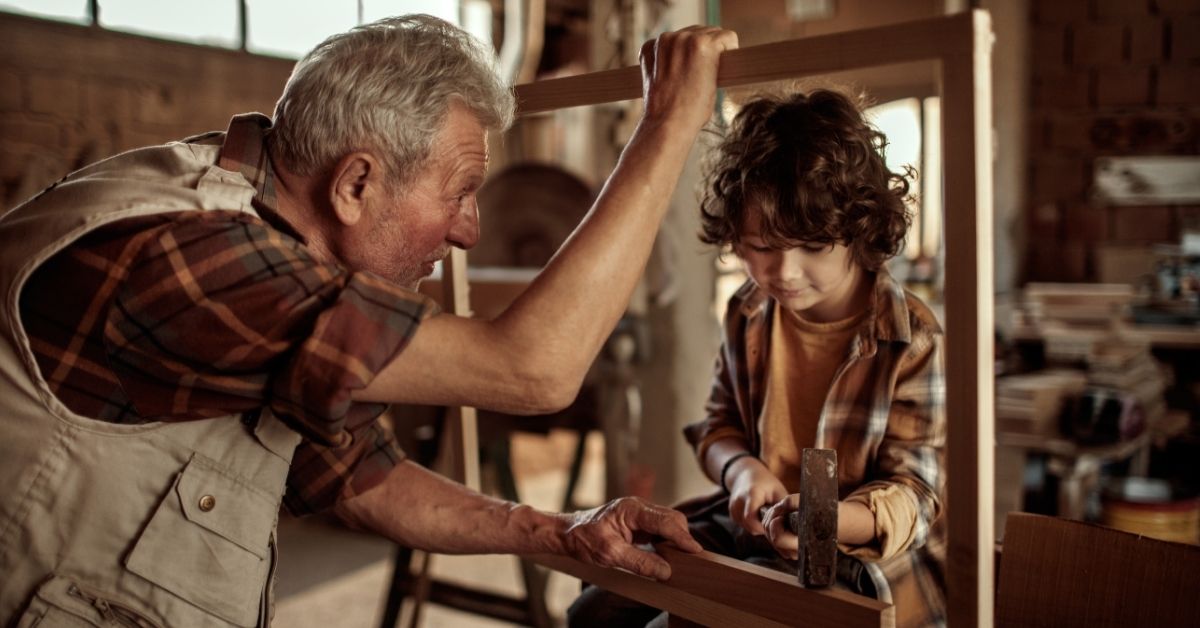Editor’s note: This article was originally published in 2023 and has been lightly updated to include current research and Reddit quotes.
It’s been said that “no man is an island,” and for good reason. As a Registered Psychologist living and working in the beautiful mountain town of Nelson, B.C., on unceded Ktunaxa and Sinixt lands, I know how important it is to have people in our lives who care about us and support us. It’s easy to get busy and lose touch, but the health impact of disconnection is real.
According to the Canadian Men’s Health Foundation’s 2025 study, nearly half of Canadian men report feeling isolated—especially younger men.
As one Reddit user put it:
The reason men struggle with loneliness isn’t because of our lack of romantic intimacy, it’s our lack of platonic intimacy. — r/malementalhealth
That’s where a men’s group comes in. It gives you a space to talk about what’s real, to listen, and to be reminded that you’re not the only one trying to figure things out.
What a men’s group is (and why it works)
A men’s group is a small, intentional gathering where men meet regularly to talk, listen, and support each other. It’s not therapy or self-help, it’s community.
You might meet around a campfire, over coffee, or on a walk. Some groups focus on hobbies; others are about open conversation. What matters is showing up.
One man on Reddit wrote about starting a group in his 50s:
We meet every week on Zoom. I’ve had multiple conversations with members who told me the group saved their life. — r/AskMenOver30
Men’s groups work because they offer a space for honesty without judgment. Our connections with others help us cope with setbacks, solve problems, feel more confident, and even manage health problems and stress.
The proven health benefits of men’s groups

Research shows clear benefits for men who meet regularly:
- Lower stress and blood pressure. Regular social interaction helps regulate cortisol.
- Better mental health. Talking with peers reduces anxiety and depression.
- More resilience. Hearing “me too” changes how men cope.
- Stronger relationships. Empathy built in groups improves connection with partners and kids.
- Healthier habits. Shared accountability encourages exercise, volunteering, and reflection.
Connection doesn’t have to be deep every time—even short, consistent catch-ups help. The key is keeping it regular and real.
How to start a men’s group
If you can plan a barbecue, you can start a men’s group.
Men’s groups are often formed around some shared interest. In my neck of the woods, one of my groups is a men’s book club. Each of us takes a turn picking a book. We’ve read adventure non-fiction such as North to the Night, novels including American War, and classic epics.
In our meetings around a campfire, at a beach, or in a restaurant, we often find ourselves connecting plot lines and themes to events in our own lives. This usually leads to more personal topics that help get things off our chests, and allow us to share advice, perspectives and insights that make the ups and downs of life easier to handle.
We build connections with each other as we talk about work stressors, the challenges and joys of parenting, upcoming family trips, past and current adventures, politics, Truth & Reconciliation, and the complexities of our dating and long-term romantic relationships.
Pick a focus
Shared interests make connections easier, whether it’s reading, hiking, cycling, cooking, or just catching up once a month.
Keep it small
An ideal number of guys to have in the group is 5 to 7. That’s enough for variety, but small enough to build trust.
When the group is too big, the banter tends to be more, “How’s work going? What are you getting up to these days?” and that’s about as deep as it gets. Which is also great, don’t get me wrong. Any opportunity to connect socially is always beneficial.
But if you want to connect on a deeper level, a smaller number enhances the group dynamic.
Set a schedule
Once a month works for most. Consistency builds habit and belonging.
Rotate hosts
Shared ownership keeps momentum going and avoids burnout
Ideas that bring men together
Not sure where to start? Try one of these:
- Learn something. Watch a documentary or TED Talk together, then discuss it afterward. Topics like creativity, stress, or fatherhood tend to be good conversation starters.
- Build something. Join or start a Men’s Shed, tackle a home project, or volunteer on a community build. Working side-by-side makes conversation easier.
- Do something active. Go bowling, hiking, or play a sport together. Movement helps conversations flow without trying.
- Help someone. Volunteer at a food bank, fix a neighbour’s fence, or organize a park clean-up. Helping others builds a sense of purpose and connection.
- Keep it simple. One group described it like this:
The whole point is to vent—or just listen. You can sit in the corner quietly and that’s enough.” — r/askTO
Sometimes connection starts simply by being there.
Another fun skill-building option: Memorizing jokes that are guaranteed to make people laugh! Here’s one of my faves:
Q: How many psychologists does it take to change a light bulb?
A: One, but the light bulb has to want to change.
What kind of men’s group would you like to start? We’d love to hear your ideas in the comments below!
Are You at Risk?
Learn your risk level for the most common men’s health conditions in 10 minutes with a free, confidential, and personalized report.






The Mankind Project, a non-profit I volunteer for, has groups all over the world. Here’s some info: https://www.mankindproject.ca/mens-groups
I’ve attended since about 2017 and it’s a great support.
I’ve just been given permission to start a mens group under the umbrella of a charity. I have free reins so I’m not restricted to what I do. A few ground rules of course. No alcohol etc. I’m trying to work out a format as to what we best to do. We will be non religious and non for profit.
The area in which we’ll be situated is a public housing area and a lot of mental issues here too.
I’m very keen to seeing your response.
Thanking you.
Kind regards,
Dougall Hamill